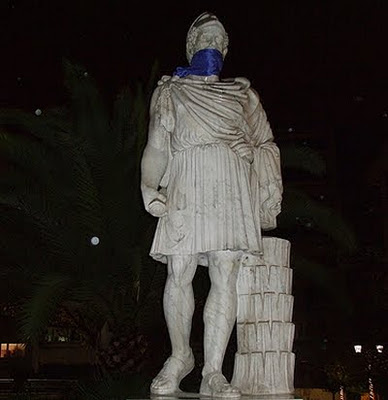Right In The Sight Of God
Right In The Sight Of God
Acts 4:19-22
"But Peter and John answered them, - Whether it is right in the sight of God to listen to you rather than to God, you must judge, for we cannot but speak of what we have seen and heard. - And when they had further threatened them, they let them go, finding no way to punish them, because of the people, for all were praising God for what had happened. For the man on whom this sign of healing was performed was more than forty years old." Acts 4:19-22 (ESV)
Peter and John stood before the most powerful leaders of Jerusalem, the religious supreme court of the Jewish high priest. In many ways, the religious leaders held more influence and control over the city than even the Roman Empire leaders.
Determined to quickly stamp out rebellious heresy as threats to their power and position, the religious leaders were astonished and speechless by the boldness of Peter and John and the irrefutable evidence of a miraculous healing in the name of Jesus Christ.
Jesus of Nazareth, the crucified carpenter, was at the core of their fear. He had claimed to be the Christ, His supposedly dead body had escaped from a sealed, guarded tomb, and the pitifully few followers left huddled in a small apartment immediately following the crucifixion had swelled to more than three thousand believers.
The Jews had cause to fear.
Without evidence of punishable crime, the court issued a gag order: Do not speak or teach at all in the name of Jesus.
WHAT DO YOU THINK? Is such a gag order possible now, in our country, in our society? Has it already happened in our generation?
"But Peter and John answered them, - Whether it is right in the sight of God to listen to you rather than to God, you must judge, for we cannot but speak of what we have seen and heard." Acts 4:19-20 (ESV)
JUDGE: krino (to distinguish, decide, try, condemn, punish)
Peter and John admitted that the Jewish leaders had the power, even the responsibility, to determine the rightness or wrongness of those accused of wickedness. The court was empowered, by human government and by God's sovereign will, to examine the acts of men and determine whether to praise or punish them.
Peter focused on the essential issue on which the court had to judge: In Peter and John's preaching and testimony, were they being faithful to God's will, or were they liars or lunatics?
How could Peter prove that they were faithful to what God Almighty desired? How can anyone presume to know the Unknowable One, The One Surpassing All Human Knowledge?
Peter rested his defence upon two simple, universal sources of evidence:
- We have seen
- We have heard
All that Peter and John preached about and testified about were verifiable. The things they had seen and heard had been in public view...nothing had been done secretly. The Scriptures they quoted had been in public view for centuries. The actions of Jesus had been in public view. The words of Jesus had been heard by scores of hundreds of people, firsthand.
If you speak of what you personally have seen and heard, you speak powerfully and irrefutably.
WHAT DO YOU THINK? Imagine facing a judge accusing you of attempting to discredit the national religion, the only religion legally allowed in this country. Given your experience to this point, what you personally have seen and heard regarding Jesus, to what could you testify?
"And when they had further threatened them, they let them go, finding no way to punish them, because of the people, for all were praising God for what had happened. For the man on whom this sign of healing was performed was more than forty years old." Acts 4:21-22 (ESV)
The most that the court could do was to threaten Peter and John with imprisonment or worse if they preached or healed in the name of Jesus. The threat was empty because a large part of the city's population were ecstatic over the miraculous healing, and the court feared riots if they punished the ones who were directly responsible, or at least connected to, the miracle.
The singlemost powerful piece of evidence in support of the miracle was a 40-year old man. For forty years, most of the population of Jerusalem had seen firsthand this crippled man survive by begging alongside the road. The public knew this man intimately. They knew his appearance, the sound of his voice, his clothing, and probably even his smell.
WHAT DO YOU THINK? Who among us has a long history with our neighbors? Can any of us say that there are people who have watched us grow up, that have personally known us, and known about our circumstance, for as long as 10 years? 20? 30? 40? What do you think God is doing through you in the lives of people who have known you for many years?
Image provided by Konstantinos Koukopoulos, http://kouk.wordpress.com/, Creative Commons License.




Comments
Post a Comment